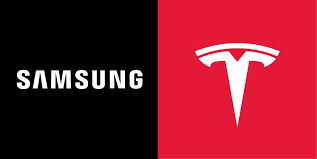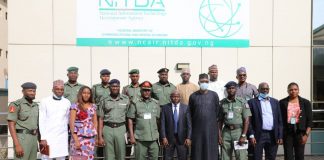Samsung Electronics has clinched a massive $16.5 billion contract with Tesla to manufacture next-generation artificial intelligence chips, a significant breakthrough for its struggling chip foundry business.
The agreement, worth 22.8 trillion won, was announced on Monday and will run through 2033. Production will take place at Samsung’s upcoming semiconductor plant in Taylor, Texas, where Tesla’s AI6 chips—key to its self-driving technology—will be produced.
Tesla CEO Elon Musk confirmed the deal in a post on X, describing the agreement as “just the bare minimum,” and hinted that the final value of the partnership could be even greater.
Samsung’s stock jumped nearly 7% following the announcement, hitting its highest mark since September. Other South Korean tech firms, such as Soulbrain Co., also benefited, with shares soaring as much as 16%.
This deal marks Samsung’s most significant contract win since Executive Chairman Jay Y. Lee was cleared of all legal charges earlier in the year. The tech giant has been grappling with low demand and underutilization in its foundry division, which has faced mounting losses.
“Their foundry business has been loss-making and struggling with under-utilization, so this will help a lot,” said Vey-Sern Ling, managing director at Union Bancaire Privée in Singapore. “Tesla’s business may also help them to attract other customers.”
Production at the Taylor plant has been delayed until 2026 due to construction and logistical challenges.
Musk noted he would personally oversee aspects of the chip fabrication process to optimize performance, as Tesla ramps up efforts to deliver fully autonomous vehicles by 2026. Tesla currently uses Samsung’s AI4 chips, while Taiwan Semiconductor Manufacturing Company (TSMC) is developing the AI5 series.
The Samsung-Tesla deal comes amid intensifying competition in the semiconductor industry. Both Samsung and TSMC are racing to develop 2-nanometer fabrication technology, which is expected to define the next generation of AI chips.
While Tesla remains committed to a fast-paced chip development roadmap, the swift transition between chip generations has drawn criticism, especially from customers who purchased earlier Tesla models under the promise of full self-driving capabilities. Tesla stopped offering retrofit hardware upgrades in 2023, citing high costs and technical difficulties.
















